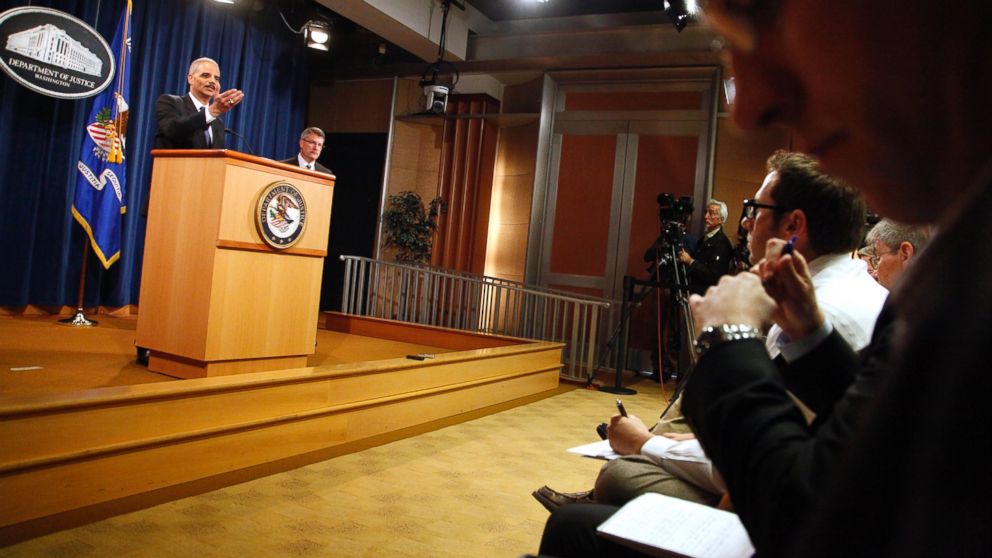Justice Dept. Vows No Jail for Reporters Doing Their Jobs
“I've felt like throwing up all day so far ..."

May 29, 2014— -- The nation’s top law enforcement officials – still under fire for their aggressive campaign against leaks to the media – now say they’ve never had any intention of letting a journalist go to jail for refusing to identify a confidential source.
It’s a stark and unexpected admission from an administration that has prosecuted more leak cases than all of its predecessors combined and has pressed at least two reporters to divulge their secret sources or face jail time.
“As long as I am attorney general, no reporter is going to go to jail for doing their job,” Eric Holder, who heads the Justice Department, told news representatives in a private meeting earlier this week.
And that, according to Holder’s deputy, has always been Holder’s position.
But Holder’s Justice Department has threatened for several years to put New York Times reporter James Risen behind bars unless he testifies about one of his confidential sources for a 2006 book on covert CIA operations.
Federal prosecutors first subpoenaed Risen for that information in 2008, and Holder has since approved subsequent subpoenas for Risen to testify about his source, most recently at the upcoming trial of former CIA official Jeffrey Sterling, who, even without Risen’s help, was indicted in 2011 for allegedly being the source. Defying a subpoena backed by a judge amounts to contempt of court, which can put someone in jail for up to 18 months.
Risen’s case has become part of a much larger uproar over how the Justice Department handles journalists and their confidential sources – an uproar peaking last year with news that federal investigators had secretly obtained phone records from The Associated Press for a separate leak investigation and had described Fox News reporter James Rosen as a criminal “co-conspirator” in another leak probe.
The uproar forced the Justice Department to revise its guidelines for dealing with reporters, specifically when and how federal investigators can obtain a reporter’s records.
But a Justice Department official acknowledged that those revisions did not tackle when and how federal investigators can try to compel reporters to testify about their confidential sources, something the comments from Justice Department leadership this week addressed in unprecedented terms.
“So [not jailing a reporter] has been the policy of this attorney general from the start?” ABC News asked Deputy Attorney General Jim Cole at a reporters’ roundtable inside the Justice Department Wednesday.
Cole answered simply: “Yes.”
It’s unclear what that will mean for the Times’ Risen, who is now asking the U.S. Supreme Court to weigh in on his case after a federal appeals court ruled against him. But in what might be the only other instance of Holder’s Justice Department subpoenaing a reporter to testify about his confidential sources, federal prosecutors ultimately backed down.
“The reporter” in this second, previously undisclosed case is the author of this article. In January 2011, while I was working for Fox News, the Justice Department persuaded a federal grand jury in Washington to subpoena me for my confidential sources after I reported two years earlier that several Somali-Americans were secretly indicted in Minneapolis for joining an al Qaeda-linked group in Somalia.




